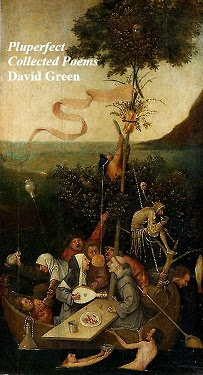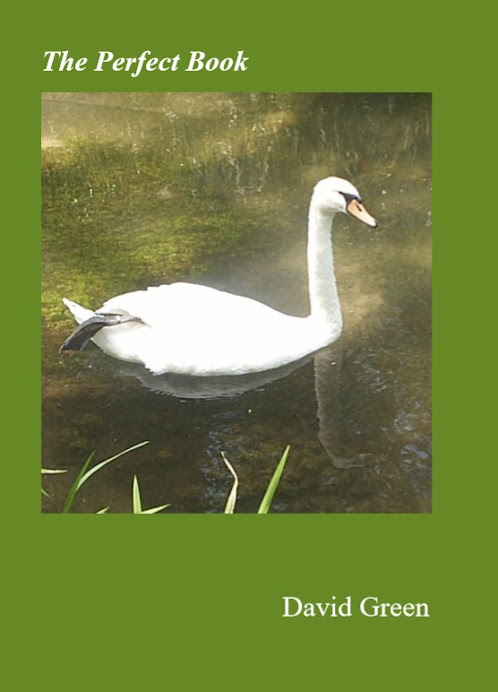It was a windy day, as it happened, that I devoted to reading Philip Larkin's Collected Poems. I had realized how little time I had spent reading my favourite writers and so the day after I finished Ulysses, I gave a day over to the Collected Poems. There is a choice of two. There is no need of Prof. Bradford's Complete unless you think everything he wrote on a birthday card counts as part of the oeuvre. Of course it doesn't. And so, out of Anthony Thwaite's two versions of the Collected, one can have the books with the poems in the order they were first published, with appendices of uncollected poems, or you can have the original edition that put them in chronological order of composition.
I chose the former option but, never mind what other questions it raises, the choice gives two different poems as where to start, either I, All catches alight, with its refrain of,
A drum taps, a wintry drum
or Going. Both are morbid. Ted Hughes and Thom Gunn, who were Larkin's rivals for poetry celebrity in the 1950's, begin Selecteds or Collecteds with somewhat more bravura. We might be in for a dreary day but one wouldn't be doing such a thing unless one knew we weren't. But, reading The North Ship first, in the 2003 Collected, promoted to a place alongside the three 'mature' collections, one can't help noticing how windy it is and not just because of the weather outside. It begins in VI and is mentioned specifically in thirteen of the XXXII poems and implied in a few more. We know already that this wind will blow through several poems in later collections, like Wedding Wind, Mr. Bleaney, Talking in Bed and gently in At Grass. I hadn't noticed quite how much its chilly restlessness defined the early work.
The introduction explains that Larkin agreed to a re-issue by Faber of The North Ship in 1966 'however reluctantly' and the decision might have been swayed by financial motives rather than artistic ones. As the appendices of uncollected poems will later show, he was an astute judge of his own work and best remembered for those poems he published in the three main volumes which does all the selecting needed to make a Selected Poems hardly necessary.
Larkin's reputation as a poet has firmed up since being identified twenty or thirty years ago in places as a 'great, minor' poet and compared with George Herbert to a high placing in the BBC's 2014 Nation's Favourite Poet poll and more consistent recognition alongside Eliot, Auden, Yeats, Elizabeth Bishop, Sylvia Plath and Seamus Heaney (please provide your own list) as one of the 'major' poets in English of the C20th with a number of his lines passing into the language. He may have been seen as 'minor' as a result of being more downbeat, everyday and apparently less inclined to grand gestures like,
Turning and turning in the widening gyre
or
April is the cruellest month
but while it might since have been realized that Literature doesn't have to be 'big', it might also have been noted that Larkin does deal with all such themes, often ironically rather than overgrandly and with reference to previous literature if that happens to be a requirement of serious work. Philip Sidney, Theophile Gautier and Thomas Hood, not to mention Shakespeare, are names we can cite if and when that essay needs writing.
It is often poetry about things that others might have found 'not worth stopping for', but reading through the Collected in one sweep it is such poems as Church Going, An Arundel Tomb and The Whitsun Weddings that one does stop at with the same satisfaction that a Ralph MacTell audience pay more attention to Streets of London. They are worth stopping for and there are good reasons why they are the best-known but there's an equal and opposite reaction in finding fine things in half-recalled poems, too.
For all of Larkin's complaints about the 'life reprehensibly perfect' spent and not getting 'the fame and the girl and the money/All at one sitting', he begins in The Less Deceived, and never really stops, comparing his lot with that of others and decides he's doing selfishly very nicely. There is no sense that he really wanted such things - and he ostensibly had them, anyway- but one might reflect that he would have been better off not comparing himself with Kingsley Amis. Perhaps the implication is that those who think they've achieved 'fulfilment' are the more deceived.
If he doesn't habitually begin with grandiose first lines, one soon starts to notice what little noise his endings make, too, in each poem that we stop at. If it is regularly pointed out that a Larkin poem broadens out from the specific to a wider perspective, they do also end on a diminuendo, like,
If only that so many dead lie round.
'Nothing, like something, happens anywhere'.
somewhere becoming rain.
With bridles in the evening come.
or,
That vase.
and if we think that
What will survive of us is love.
is a momentous, optimistic thought to end on then we haven't noticed how the preceding lines, not just the last stanza but the whole poem, has hollowed them out from inside by explaining they are 'untruth', 'hardly meant' and only an 'almost-instinct' only 'almost true'.
These are quiet endings compared to
Shantih. Shantih. Shantih.
or
That dolphin-torn, that gong-tormented sea.
If love is repeatedly the thing that Larkin suspects he might have missed out on, 'that much-mentioned brilliance' that they say should fall, 'like an enormous yes', he has been aware since page 48, in Reasons for Attendance, that 'what calls him',
is that lifted, rough-tongued bell
(Art, if you like)
and he wasn't the first artist and won't be the last who searched for transcendence only to find it in their own, or other, art.
Towards the end of The Whitsun Weddings, Send No Money, that the chronology identifies as one of the later poems in the book, from 1962, prefigures a hardening attitude expressed in more regular use of the vulgar or vernacular that is a noticeable difference between High Windows and the other two mature collections.
The Old Fools, The Card Players and an awareness of the corporate -we might even say Thatcherite- world in Going, Going and Friday Night in the Royal Station Hotel are less inclined to gloss over dissatisfactions with compensations and Vers de Société only changes its mind at the last minute.
While remaining capable of a poem as gently moving as Dublinesque, High Windows is the least attractive of the three books due to a coarsening of view, and of language. Not necessarily by much but noticeably. They can look like poems done less carefully, less caringly, or less sensitively.
If the first appendix of poems, 1940-1972, show what a good editor of his own work he was, the second, 1974-1984, shows that he was nowhere near a further volume, notwithstanding the brilliant, brutally honest Aubade, which I thought I might have noticed forming as early as 1943/4 in Dawn, which is IV in The North Ship, with its,
How strange it is
for the heart to be loveless, and as cold as these.
If you want The Dance, you need the other edition, the 1988 version, but I didn't miss its unmade ramblings and if Larkin didn't see fit to finish it, polish it or publish it, I'm not convinced we need to read it. But what a day well spent it was, being reminded of the art of understatement, of clarity and poems being so well made. It didn't result in much reassessment and was never likely to. I never felt sorry for him and his complaints were mainly a strategy of disguise, pretending to be a curmudgeon in order to defend that which he wanted to defend.
But, perhaps like Hamlet, one can pretend to be mad and then not know whether one has become mad or not. One can put on a miserable disposition, almost for a joke, and find it suits you.











